Inclusion does not necessarily mean an endorsement of what everyone has to say. They are for further research:
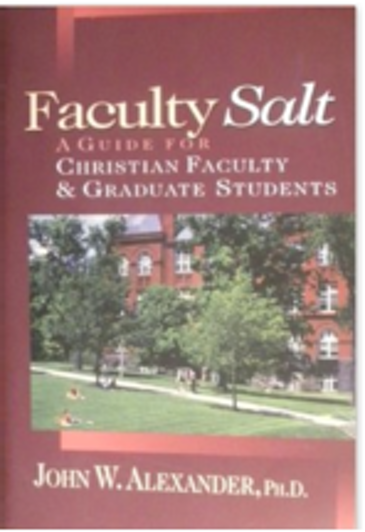 Alexander, John. Faculty Salt: A Guide for Christian Faculty & Graduate Students. Madison, WI: InterVarsity Graduate & Faculty Ministries, 2000.
Alexander, John. Faculty Salt: A Guide for Christian Faculty & Graduate Students. Madison, WI: InterVarsity Graduate & Faculty Ministries, 2000.
A concise and thoughtful exposition written by former professor, which tends to stress the importance of personal witness and life example for evangelistic effectiveness in academe.
 Abraham, William. The Logic of Evangelism. Grand Rapids, MI: Wm. B Eerdmans Publishing Co., 1989.
Abraham, William. The Logic of Evangelism. Grand Rapids, MI: Wm. B Eerdmans Publishing Co., 1989.
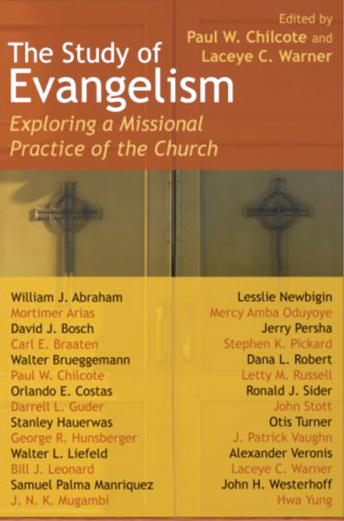 Chilcote, Paul Wesley and Lacoye, C. Warner. The Study of Evangelism: Exploring a Missional Practice of the Church. Grand Rapids, MI: Wm. B Eerdmans Publishing Co. 2008.
Chilcote, Paul Wesley and Lacoye, C. Warner. The Study of Evangelism: Exploring a Missional Practice of the Church. Grand Rapids, MI: Wm. B Eerdmans Publishing Co. 2008.
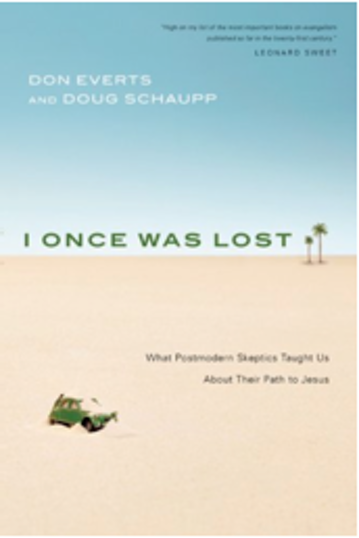 Everts, Donald. & Schaup, Doug. I Once Was Lost: What Postmodern Skeptics Taught Us About Their Path to Jesus. Downers Grove, Ill: InterVarsity Press, 2008.
Everts, Donald. & Schaup, Doug. I Once Was Lost: What Postmodern Skeptics Taught Us About Their Path to Jesus. Downers Grove, Ill: InterVarsity Press, 2008.
An inviting book that was written by two InterVarsity staff who have a history of working with students. Rather than tell missional Christians in academe what seems best from their point of view as to what works in academe, they have sought to survey those who have come to faith in Christ during their academic sojourn to see what can be learned from that input. One useful tool is that they sought to crystalize certain thresholds people need to cross in order to become a follower of Christ. Awareness of these thresholds can help us think in terms of a sharpening our abilities to help people in that process cross those thresholds instead of thinking in terms of of just one threshold, “closing the deal.”
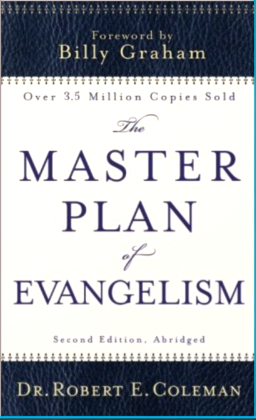 Coleman, Robert. The Master Plan of Evangelism. 2nd edition, Wheaton, Ill: Revel, 1993.
Coleman, Robert. The Master Plan of Evangelism. 2nd edition, Wheaton, Ill: Revel, 1993.
A classic which helps the reader realize that to really be effective in the long-term, it is wise to learn the methods that Christ used as He sought to build a world-wide ministry. Coleman identifies the importance of multiplying your spiritual work through the careful selection and training of people who will select and train others...a must reading.
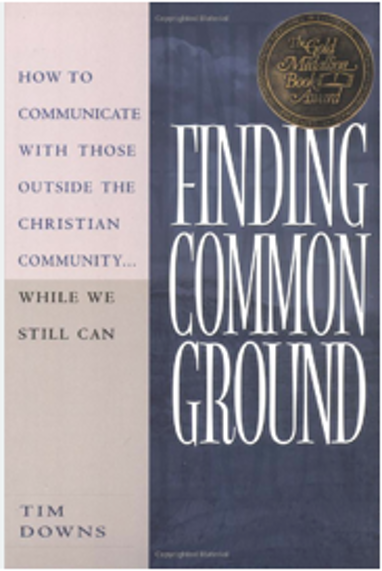 Downs, Timothy. Finding Common Ground: How to Communicate With Those Outside the Christian Community...While We Still Can. Chicago, Ill: Moody Publishers, 1999.
Downs, Timothy. Finding Common Ground: How to Communicate With Those Outside the Christian Community...While We Still Can. Chicago, Ill: Moody Publishers, 1999.
Really a book about “sowing the gospel” in a judicious manner. An indispensable read for anyone who is or who seeks to do evangelistic work in academe.
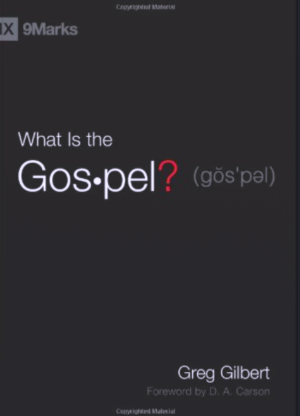 Gilbert, Greg. What is the Gospel? Wheaton, Ill: Crossway, 2010.
Gilbert, Greg. What is the Gospel? Wheaton, Ill: Crossway, 2010.
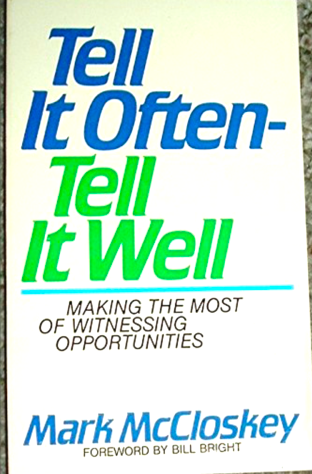 McCloskey, Mark. Tell it Often, Tell it Well: Making the Most of Witnessing Opportunities. San Bernardino, CA: Here’s Life Publishers, Inc., 1986, 1992.
McCloskey, Mark. Tell it Often, Tell it Well: Making the Most of Witnessing Opportunities. San Bernardino, CA: Here’s Life Publishers, Inc., 1986, 1992.
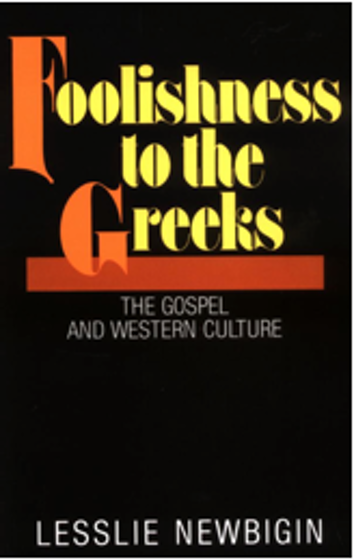 Newbigin, Leslie. Foolishness to the Greeks: The Gospel in Western Culture. Grand Rapids, MI: B. Eerdmans Publishing Co., 1986.
Newbigin, Leslie. Foolishness to the Greeks: The Gospel in Western Culture. Grand Rapids, MI: B. Eerdmans Publishing Co., 1986.
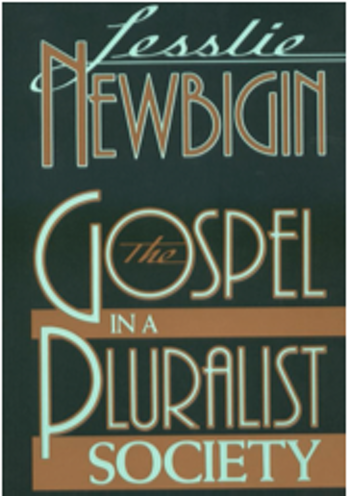 _______. The Gospel in a Pluralist Society. Grand Rapids, MI: B. Eerdmans Publishing Co., 1989.
_______. The Gospel in a Pluralist Society. Grand Rapids, MI: B. Eerdmans Publishing Co., 1989.
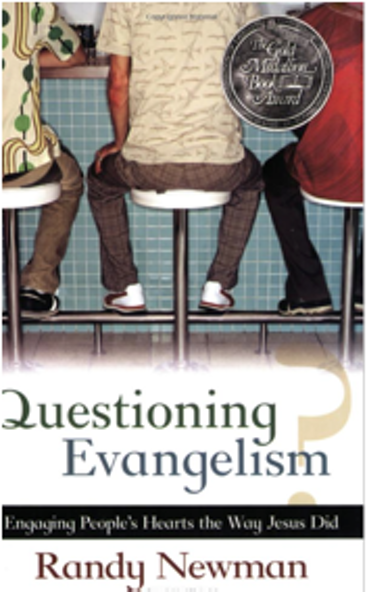 Newman, Randy. Questioning Evangelism. Kregel Publications, 2004.
Newman, Randy. Questioning Evangelism. Kregel Publications, 2004.
We think this is a must read for those who wish to do effective evangelism (where clarifying the issues is paramount) in academe. It is less threatening to both the questioner and the questioned and allows the evangelist to better understand the person with whom she dialogues. This allows the evangelist the possibility of contextualizing the gospel in ways to the hearer so that they better understand its essence.
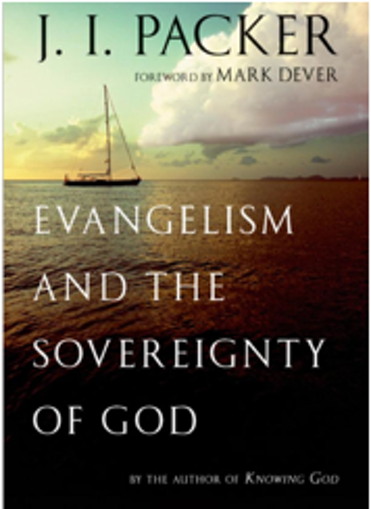 Packer, J.I.. Evangelism and the Sovereignty of God. Downers Grove, Ill: InterVarsity Press, 2009.
Packer, J.I.. Evangelism and the Sovereignty of God. Downers Grove, Ill: InterVarsity Press, 2009.
A classic read for many evangelicals who resist doing evangelism based on their particular understanding of predestination, atonement and the elect. It’s tries to walk the line between the two historical understandings of human responsibility and argues both positions really have the responsibility to proclaim the gospel.
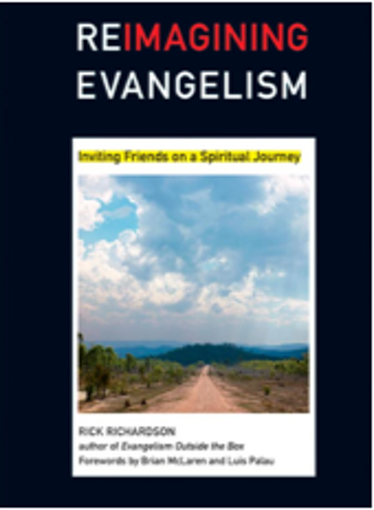 Richardson, Rick. Reimagining Evangelism: Inviting Friends on a Spiritual Journey. Downers Grove, Ill: InterVarsity Press. 2008.
Richardson, Rick. Reimagining Evangelism: Inviting Friends on a Spiritual Journey. Downers Grove, Ill: InterVarsity Press. 2008.